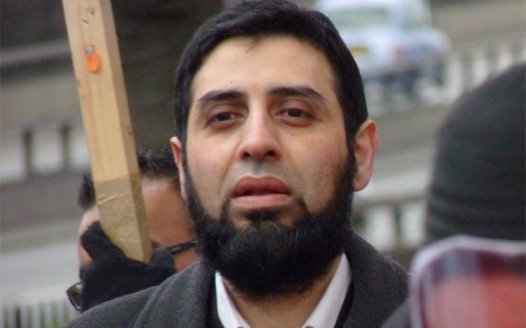Hospital chaplains: unfair, unevidenced, unnecessary?
Posted: Thu, 20th Apr 2023 by Alejandro Sanchez
NSS research shows the NHS significantly cut real-terms chaplaincy spending between 2009 and 2021. This is a step in the right direction – but £29m a year is still far too much to be forking out on a religious service, argues Dr Alejandro Sanchez.
National Secular Society research has found that in 2020/21, the NHS spent £29.7m on chaplaincy. In absolute terms this is not dissimilar from the £29m spend in 2009/2010. When adjusted for inflation, however, this represents a 20.3% real-terms cut.
It would seem the NHS has deprioritised funding for chaplaincy – and this is no bad thing.
A new report from the Nuffield Trust says public satisfaction with the NHS has slumped to its lowest level ever since surveys began in 1983. Waiting times, staff shortages and inadequate funding are the top sources of dissatisfaction. Increasing NHS staff, making it easier to get GP appointments and improving waiting times for operations should be the top priorities, according to about half of those surveyed. There are several other priority areas identified, but chaplaincy, or even general pastoral care, are not among them.
The NSS has long questioned the wisdom of using the already over-stretched NHS budget on providing a religion-specific service with contestable health benefits. We don't deny that providing spiritual and pastoral care to patients is deeply compassionate act which brings comfort to people at their lowest. But when the NHS is struggling more than ever, is it justifiable to continue spending millions on what's first and foremost a religious activity?
Unfair
In 2020/21, the NHS employed 910 chaplains. Of the 460 that data was available for, over 78% were Christian. This is entirely incongruous with last year's census data which revealed England and Wales are minority Christian countries for the first time. If the NHS is to employ chaplains, it should, at the very least, ensure that they are representative of the population they minister to.
The overrepresentation of Christian chaplains comes as no surprise when one examines how chaplaincy roles are advertised. A 2020 report by the Network for Pastoral, Spiritual, and Religious Care in Health found Christian chaplains enjoy "unfair advantages", including job specifications that use Christian criteria such as "ordination and endorsement from a Christian authorising body." No wonder then that the Church of England was the only faith group to reject the findings of the report.
Unevidenced
There is no compelling evidence that spending more on chaplains results in better outcomes for patients. Previous NSS research examined whether NHS trusts that spent more on chaplaincy had better results as measured by two benchmarks. No statistically significant relationship was established between higher chaplaincy spend and either mortality rates or 'Standards for Better Health' – a measure of quality of service and use of resources. The report concluded that chaplaincy spending could be cut by £18m without detriment to patient outcomes.
With the NHS on its knees and staff morale at all-time lows, surely the system would benefit by reallocating the chaplaincy budget to employ over 1,000 more junior nurses. And the notion that junior chaplains may be paid £9,000 more than newly registered nurses cannot be right.
Unnecessary
The key attribute of any successful hospital chaplain is the ability to empathise with and relate to the patient in front of them. They must provide support to the patient in their hour of need in a friendly and non-judgemental way. Religiosity is in no way a pre-requisite of these skills.
In 2020, an Catholic NHS chaplain was accused of telling a gay patient he "should not be with his husband" and he "would go to hell". After his contract was ended for budgetary reasons, the chaplain in question said the NHS "were not prepared to tolerate having a chaplain on site who would not affirm what the Catholic church teaches to be a sin."
Furthermore, a 'Caring for the Hindu patient' leaflet, produced by the chaplaincy section of Frimley Health NHS Foundation Trust, perpetuates hierarchical and discriminatory aspects of the Hindu caste system. It describes the Harijan caste as "the lowest Hindu caste (untouchables). Menstruating women and mourners can be seen as ritually unclean and therefore untouchable." By contrast, the Brahmin are the "highest Hindu caste".
While I am in no way suggesting that all chaplains foist religious dogma upon their patients, these cases certainly serve as a cautionary tale of the risk in mixing faith and healthcare.
What's perhaps even more disturbing is that chaplaincy opens the doors for those with more sinister agendas – such as Jehovah's Witness elders who want to ensure members of their congregation who happen to be hospitalised don't receive a blood transfusion, even if this means death.
In an increasingly diverse and irreligious society such as ours, it makes little sense to organise patients' pastoral care around religious identities. While it should remain the prerogative of religious groups themselves to fund religious care, the appointment of NHS pastoral support staff must become separate from the religious affiliation of the applicant. When considering how to reform the NHS for greater fairness, effectiveness and best use of limited public funds, chaplaincy must be one area up for review.
Special thanks to Dominic Wirdnam and Tom Shaw for their research into chaplaincy spending in the NHS.
Reform chaplaincy
NHS-funded pastoral care shouldn't be discriminatory. Join our campaign to reform chaplaincy.








